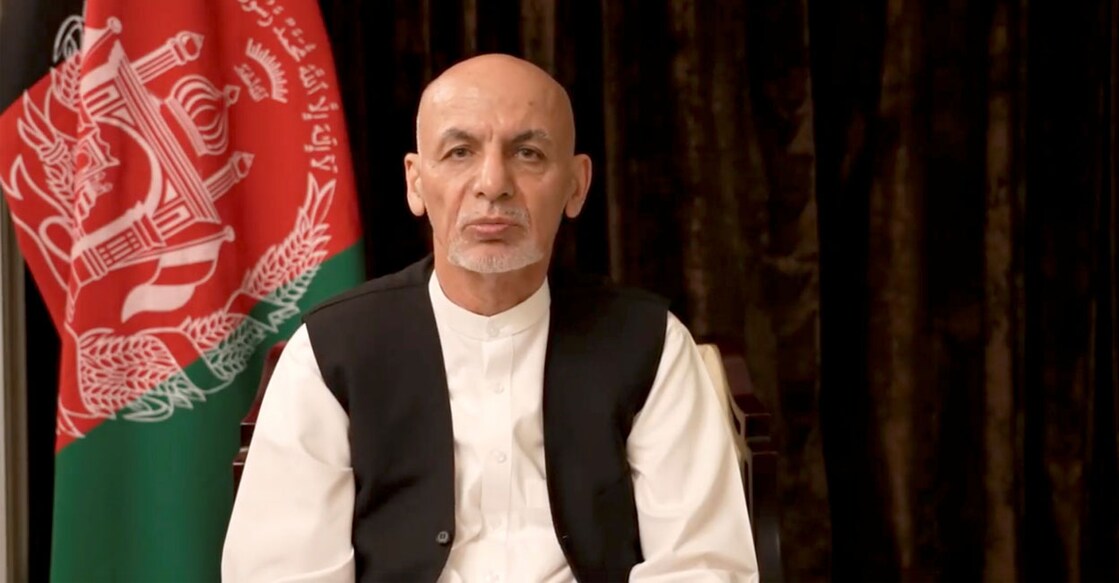Left Afghanistan with one set of clothes, a vest, and sandals, says Ashraf Ghani amid rumors he fled with $169 million

Mail This Article
Afghan President Ashraf Ghani on Wednesday defended his decision to flee Kabul in the face of the Taliban advance, describing it as the only way to prevent bloodshed.
He also denied claims by his country's ambassador to Tajikistan that he had stolen millions of dollars from state funds.
Ghani posted a video on his Facebook page late on Wednesday, confirming that he was in the United Arab Emirates.
He thanked Afghan security forces in his message, but also said that the failure of the peace process led to the Taliban snatching power.
He also indirectly tried to quash an accusation by Afghanistan's ambassador to Tajikistan that he had stolen USD 169 million from state funds.
He claimed that he was "forced to leave Afghanistan with one set of traditional clothes, a vest and the sandals I was wearing".
"Accusations were charged in these days that money was transferred, these accusations are fully baseless," he said.
Ghani left Afghanistan on Sunday just as the Taliban approached Kabul.
The United Arab Emirates on Wednesday said it had accepted Ghani "on humanitarian grounds".
"The UAE Ministry of Foreign Affairs and International Cooperation can confirm that the UAE has welcomed President Ashraf Ghani and his family into the country on humanitarian grounds," the ministry said in a brief statement.
Twice elected president, both times after bitterly disputed contests, the former World Bank academic left the country without saying where he was going. Al Jazeera reported later he had flown to Uzbekistan.
"To avoid bloodshed, I thought it would be better to leave," he said on Facebook in his first comments.
First elected president in 2014, Ghani took over from Hamid Karzai, who led Afghanistan after the US-led invasion in 2001. Ghani oversaw the conclusion of the US combat mission, the near-complete withdrawal of foreign forces from the country and a fractious peace process with the insurgent Taliban.
An increasingly isolated figure, he made ending decades of war a priority, despite continuing attacks on his government and security forces by the Taliban. Ghani began peace talks with the insurgents in the Qatari capital, Doha, in 2020.
But foreign governments were frustrated by the slow progress of the talks and his increasingly prickly reaction, and calls grew for an interim government to replace his administration.
During his presidency, he managed to appoint a new generation of young, educated Afghans to leadership positions at a time the country's power corridors were occupied by a handful of elite figures and patronage networks.
He promised to fight rampant corruption, fix a crippled economy and transform the country into a regional trade hub between Central and South Asia - but was unable to deliver on most of those promises.

